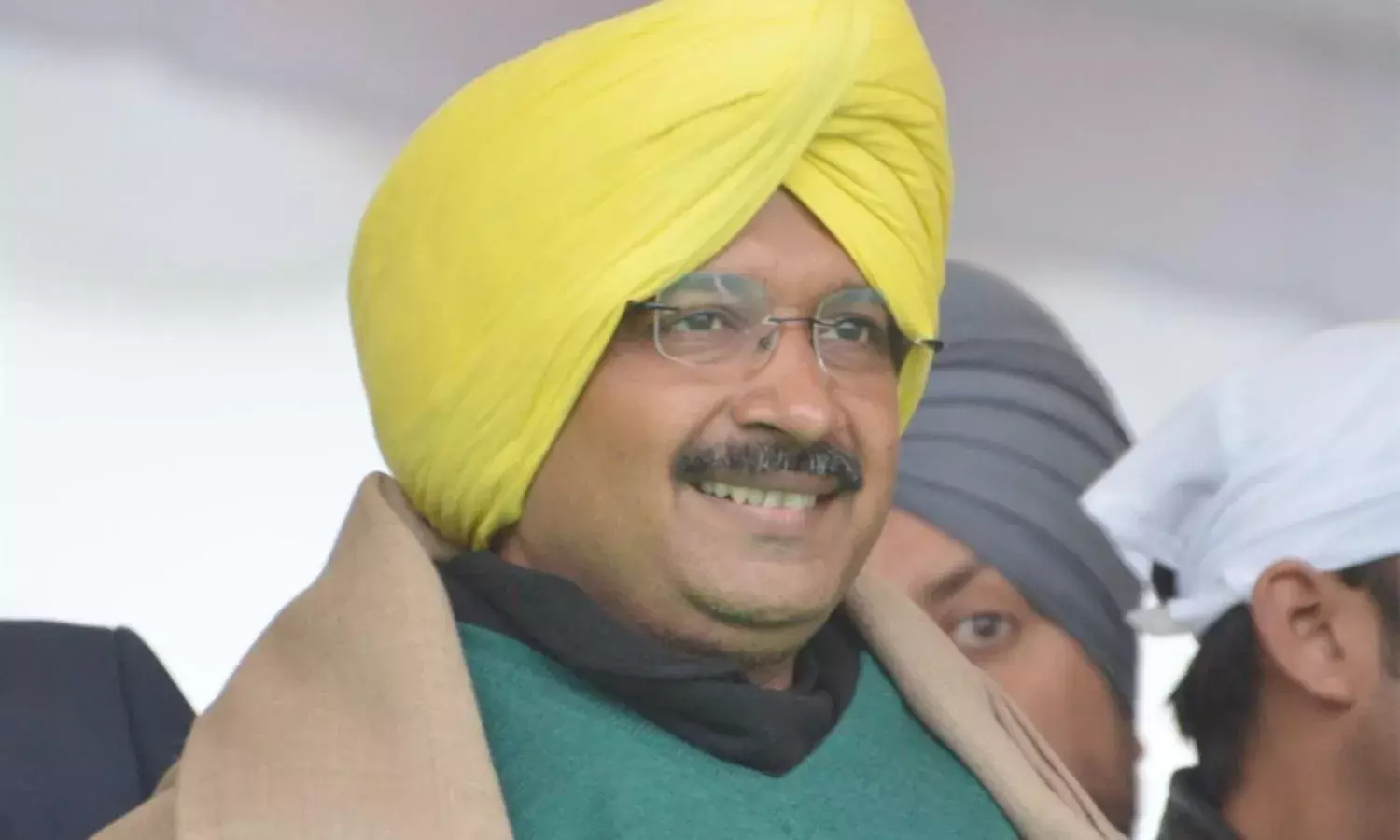An Honest Man
Propped up by progressives

On 20 January, Delhi chief minister Arvind Kejriwal called Punjab chief minister Charanjit Singh Channi a dishonest man, and emphasized that Channi should not be viewed as a common man, an aam aadmi. That is, the patent of the common man lies with Kejriwal alone, and in this respect, honesty as well.
Kejriwal made this statement in a quick response to the Enforcement Directorate’s raid on Channi’s nephew’s house. Since then, a series of allegations and counter-allegations have been going on between the two leaders, which may continue till the last day of the Punjab Assembly elections.
I waited for some time to see if any journalist, analyst or scholar would comment on this hasty statement of Kejriwal. But so far I have seen no such comment. Kejriwal was followed by the Aam Aadmi Party’s chief ministerial candidate Bhagwant Singh Mann who stated that he himself could not be a candidate from a reserved seat—so Channi should show the courage of giving up his reserved seat and contest from his “general” seat.
No comment has been seen on this statement of Bhagwant Singh Mann’s either. Hence this short note.
If a leader like former chief minister Amarinder Singh or incumbent deputy chief minister Sukhjinder Singh Randhawa had been the CM face from the Congress side, Kejriwal would have avoided calling them dishonest outright, even if had labelled the remaining Congress party as dishonest. Had similar ED raids been performed on the leaders of the Shiromani Akali Dal or the newly formed Punjab Lok Congress, Kejriwal would have avoided calling them dishonest too.
And had there been a Congress chief ministerial candidate other than Channi, Bhagwant Singh Mann also might not have challenged Channi, who comes from Dalit society of Punjab, to contest against him from the Dhuri constituency.
I do not write this comment in defence of Channi. Hearing Kejriwal’s statement I was only reminded of the anti-corruption movement organized under the aegis of India Against Corruption. And Bhagwant Singh Mann’s statement reminded me of the earlier Youth for Equality campaign.
Everyone knows that the platform of that anti-corruption movement was used to attack the ‘dishonest’ Prime Minister Manmohan Singh, his government and the party, and praising the honest Vikas Purush, Narendra Modi. Then some ‘dishonest’ elements raised the issue of ‘honest’ Kejriwal taking nine lakh rupees while he was in government service. It was learnt that he had gone abroad at public expense: on his return he had three more years of work left to do in his office, and for not doing so, nine lakh rupees had to be deposited by him in the department.
Courtesy the progressive and secular civil society, the market price of Kejriwal’s ‘honesty’ was skyrocketing in those days. The civil society attacked like a lion those who had brought this case against him to light. (The supporters of a lion are also considered lions!) The civil society barbed that the Congress, which was drowning deep in dishonesty, had discovered this case against Kejriwal.
Kejriwal cited the plea that the post he held in his office could have earned him crores. That is, why would he spoil his integrity for a meagre amount of nine lakhs! He deliberately sent the amount directly by cheque to ‘dishonest’ Prime Minister Manmohan Singh, not depositing it in the concerned department. He was lauded by his supporters on this befitting act!
Similarly, some ‘ungrateful’ elements raised some legal questions on the money received by the anti-corruption movement and the Aam Aadmi Party, which rose from the ashes of that very movement, from domestic and foreign sources. Then again the civil society dismissed it as the handiwork of the dishonest Congress. However, when Anna Hazare said that public donations received from people should be accounted for, Kejriwal directly said that he had earned nothing in life except honesty.
On hearing his emotional utterances, civil society began to swing in intoxication of Kejriwal’s honesty and its own. (For a detailed account of the honesty discourse of Kejriwal and civil society supporting each other, see my book Bhrashtachar Virodh: Vibhram Aur Yatharth, Vani Prakashan 2014.)
People might have remembered the Youth for Equality campaign. As part of that campaign against the provision or policy of reservation, a strong demonstration was held at Jantar Mantar in Delhi. Kejriwal and Manish Sisodia participated in that demonstration. In fact, the campaign launched in favour of “merit” against reservation was nurtured by these two gentlemen.
A lot of water has flown in the Ganges since then. It is not without reason that Kejriwal can openly call Channi a dishonest man; and Bhagwant Singh Mann can openly raise the issue of Channi’s merit in the election battle. Kejriwal has been empowered to do so by the progressive and secular civil society of India.
I do not say that Channi is an honest politician, or that the ED, as is the practice, has tried to defame him by raiding his nephew’s house at the behest of the Centre. Channi too will be a mixture of dishonesty and honesty like most other people and leaders of the country. His relatives would also have taken undue advantage of his position. The country’s treasury and all the assets are kept in the hands of the leaders. Therefore, their dishonesty can also be proportional. The common man may have to be content with stealing a simple amount of nine lakhs.
Suffice to say while summarising the comment that Kejriwal is an honest man, recognized by progressive and secular civil society. He can retain the right to openly call anyone, at any time, dishonest. Channi may have been active in Punjab politics for a long time, even though he might have tried to maintain utmost honesty in his public life, but he can be called a dishonest man by the champion of honesty.
Prem Singh is a former Delhi University teacher and fellow at the Indian Institute of Advanced Study, Shimla



